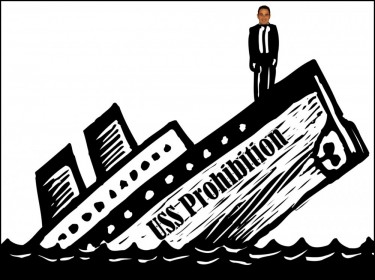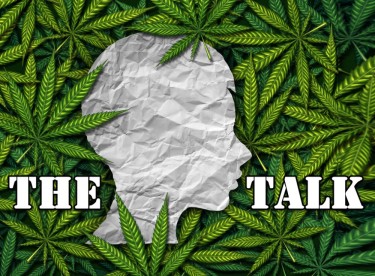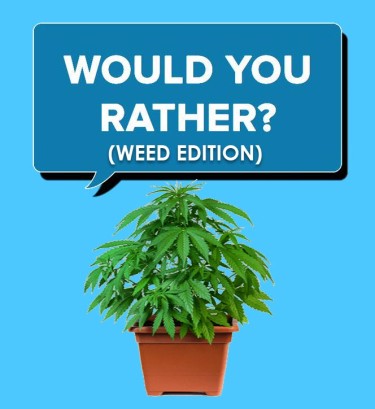Cannabis News
The Return of a Foe – Reginald vs. Kevin Sabet
Published
1 year agoon
By
admin
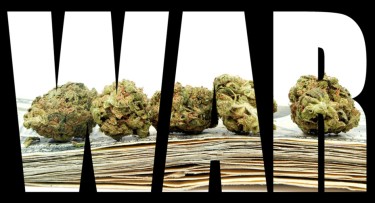
The Return of a Foe – Reginald Vs Kevin Sabet
The benefits of cannabis legalization are numerous and undeniable. For starters, legalization would allow for the regulation and control of cannabis, ensuring that it is produced and sold in a safe and responsible manner. It would also free up law enforcement resources, which could be better spent on fighting real crimes and keeping our communities safe.
Legalization would also create jobs and stimulate economic growth. The cannabis industry is booming, and legalizing cannabis would allow for the creation of a whole new sector of the economy. It would also generate tax revenue, which could be used to fund schools, infrastructure projects, and other public services.
But, perhaps the most important reason to legalize cannabis is that it would end the harmful and ineffective policy of prohibition. Prohibition has done nothing to stop people from using cannabis, and has instead created a whole host of problems, including a massive black market, increased rates of incarceration, and the perpetuation of harmful stereotypes and stigmas surrounding cannabis use.
Legalization would also allow for more research into the medical benefits of cannabis, which could lead to the development of new treatments and therapies for a variety of illnesses and conditions. It could also help to reduce the harm caused by other drugs, as people would have access to a safer alternative.
Cannabis legalization is the only sane approach to drug policy. It would benefit society as a whole, by creating jobs, generating tax revenue, freeing up law enforcement resources, and ending the failed policy of prohibition. So let’s stop the fear-mongering and start embracing the many benefits of cannabis legalization.
However, not everyone sees it like this.
Which brings us to the main topic of our article today – me eviscerating the arguments of a seasoned prohibitionist. And who are we talking about?
Well, my old Pal Kevin Sabet. You know, the seasoned prohibitionist who takes money from Big Rehab and has an agenda to keep cannabis “not legal” so that they can continue to make money from people being ordered by the courts to attend their rehab programs.
Well, to be technically factual about everything, he’s the founder of SAM or “Smart Approach to Marijuana” which takes money from Big Rehab. I think it’s important to mention this as this is clearly a conflict of interest. Perhaps not more than my own, who would like to see cannabis legal.
Perhaps, Kevin and I are the same beast but on opposite spectrums? I’m just way cooler!
Anyhow, let’s not beat around the bush. Kevin is up to his no good tactics and published an article on multiple outlets which is bashing New York’s legalization efforts as a “reason why cannabis should not be legal”, but i’m going to point out how it was “Affirmative Legalization” mixed with prohibition that is truly responsible for the claims he made.
So if you’re ready for a wild ride…let’s get to jousting!
Kevin’s First Claim: Legalize and kids will use it!
It seems obvious: When society puts its stamp of approval on today’s high-potency marijuana, more kids will start using it.
This is his opening line on the article. The idea that legalizing cannabis will result in more kids using it is simply not supported by the evidence. In fact, studies have shown that legalization does not lead to an increase in teen cannabis use, and may even have the opposite effect.
One reason for this is that legalization would take cannabis out of the shadows and into the light, making it less mysterious and more boring to young people. Legalization would also allow for better education and prevention efforts, which could help to reduce the rates of teen use.
Furthermore, the evidence shows that cannabis use among teens has actually decreased in states that have legalized cannabis. In Colorado, for example, teen cannabis use has decreased since legalization, and is now below the national average.
It’s also worth noting that the harms of cannabis prohibition far outweigh any potential risks of legalization. Prohibition has created a massive black market, which is controlled by dangerous criminal organizations. It has also resulted in increased rates of incarceration and racial disparities in the criminal justice system.
Of course, Kevin is talking about another marketplace – New York – which took a completely different approach to cannabis legalization and as a result, has created a bloated black market. We’ll get into that later as much of Kev’s arguments depend on it. For now, this idea doesn’t stand up to scrutiny as it’s not true for other “approved” substances such as alcohol.
Kevin’s Second Claim: Legalization Expanded NYC Black Market
Legalization has certainly expanded New York City’s black market. Dealers who once operated in back alleys still do that, but many have set up illegal “shop” to augment their delivery and other businesses.
These prohibitionists are like a bad penny, they just keep turning up no matter how hard we try to get rid of them.
Now, Kevin seems to think that when New York legalized cannabis, it inadvertently expanded the black market. But, as is often the case with these prohibitionists, the truth is far more complex than that. While it’s true that there are roughly 1400 unlicensed cannabis stores in New York now, the reason for this is not solely because of cannabis decriminalization.
In fact, there have been a number of other factors that have contributed to the rise of these “illegal” dispensaries. As Christopher Booker noted in a recent PBS article, sweeping criminal justice reforms in 2020, including bail reform, have also played a role in the rise of unlicensed dispensaries.
Furthermore, the pandemic has created economic hardship for many, and cannabis is a hot commodity. It’s not surprising that some people have turned to the black market to try to make a quick buck. To blame this situation solely on cannabis legalization is not only disingenuous, it’s purposefully deceptive.
The truth is, the rise of unlicensed dispensaries is a complex issue, and it cannot be attributed solely to cannabis decriminalization. However, one cannot be surprised by a dying species’ survival instincts – in this case, the prohibitionist.
Kevin Admits he’s wrong
Compounding the issue is the fact that law enforcement officials are unable to crack down on stores that sell to minors. They can only issue $250 fines to those who sell without a license, illustrating why the negligible fines have failed to serve as a deterrent against illicit sellers.
Within the article, Kevin eventually cites the very thing I cited earlier a “$250 fine”, which plays into the whole criminal justice reform issue we touched earlier.
You see, where Kevin and I have always agreed upon is that “children should not be smoking weed”, or drinking, or doing any of that crazy stuff. Nobody has ever argued that this be the case.
However, it is equally as atrocious to deny an adult autonomy to their own minds and body on a international scale. Both of these issues are equally important. Yet prohibition also creates inequality, injustice, makes drugs & neighborhoods more dangerous.
If over the period of nearly 80-years under the steel-toe boot of prohibition the US government with its fat, inflated war budget – only managed to increase the prevalence of cannabis, make it more potent and spread across the world…it speaks to the futility of this action. Hell, it’s straight up “masterbatory” at this point.
The issue here is not that weed is illegal, but rather that the penalties for selling without a license has shifted, embolden criminals to behave more “criminally”.
I’m sure you’ve seen the videos of the crazy stuff happening in New York – and while I’m certain that this is a microscope over the macrocosm that is the city and state, the fact is that it does happen. Every New Yorker has a crazy story.
The point here is that it is true, we have to make sure that kids understand the risks involved with consuming cannabis – especially consistently smoking high-potent stuff while still being a bunch of dumbasses who still don’t know how to use their genitals properly.
We need to come to a point in society where we can accurately distinguish the differences between “Adult behavior” and “child behavior”.
The World Kevin Dreams of…
Imagine the world of Kevin – a world where everything is “child-proofed” and no one is allowed to do anything remotely dangerous or risky.
In Kevin’s world, everything would be censored and sanitized to protect the children. No more alcohol, no more cigarettes, no more fast cars, no more spicy foods. All of these things would be banned because “what if a child” got a hold of them.
In Kevin’s world, we’d all be wearing helmets and knee pads, and bubble-wrapped from head to toe. We’d all be living in padded cells, with no sharp objects or potentially harmful substances allowed. We’d all be living in a world that was sterile, safe, and utterly boring.
But, of course, this is not the world we want to live in. We don’t want a world where everything is child-proofed and no one is allowed to take risks or make their own choices. We want a world where we can live our lives as we see fit, without fear of persecution or judgment.
So, let’s reject the world of Kevin and embrace a world where we can make our own choices, take our own risks, and live our lives to the fullest. Let’s reject the notion that everything must be censored and sanitized for the sake of the children, and instead focus on providing them with education and guidance so that they can make their own choices in the future.
PS.
If you are reading this far, I didn’t go through all of the article because at the end, Kevin shifts gear towards citing studies that allege that cannabis does damage to kids…which may or may not be true because most of those studies never prove a causal relationship.
Virtually every study will have the phrase, “more research is needed…” yet due to the prohibition machine, there are an infinite number of these studies available to the tune of 95% of them being funded by the government specifically looking for “dangers of cannabis”.
Therefore, I didn’t want to divert the conversation away from the main point I am making…you can’t blame “legal weed” for the shit that’s happening in the NY market. If it was legal weed, why isn’t it happening everywhere cannabis is legal?
MORE ON KEVIN SABET, READ ON…
You may like

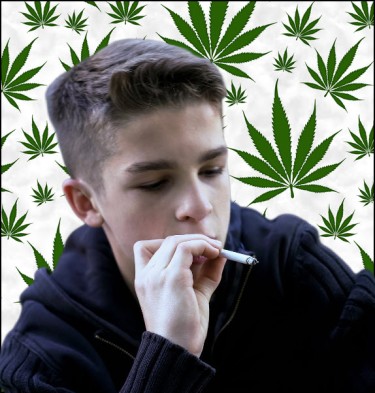
Marijuana for recreational and medicinal purposes is becoming more widely available and simpler to purchase every day. Furthermore, opinions about the drug’s possible risks have changed as a result of recent legislative modifications, especially among young teenagers.
While proper use of marijuana can offer health benefits for specific conditions, inappropriate use can lead to a variety of problems. It can severely impact health, situational judgment, memory, coordination, and more.
Given that marijuana has rapidly become a much more commonly used drug among young people, it is crucial to recognize the main signs of marijuana use in teens to ensure their safety and well-being.
Statistics on Child Marijuana Use
Though the stats may surprise you, marijuana is the most often used narcotic among teenagers. Among children between the ages of 12 and 17, the National Center for Drug Abuse reports that:
– Nearly 44% have tried marijuana in their lifetime, up from 37% in 2019.
– 35% used marijuana in the past year.
– Almost 7% of 12th graders use marijuana daily.
Regretfully, eighth, ninth, and tenth kids are exposed to an alarmingly high level of marijuana. Early usage is problematic since those who start using earlier have a greater likelihood of heavier use later in life.
How THC Impacts the Brain
The active element in cannabis is tetrahydrocannabinol (THC), which produces the “high” associated with marijuana. THC can be ingested by smoking cannabis flowers, vaping concentrated forms, or eating THC-infused foods. THC impacts the brain by interfering with processes that are typically controlled by naturally existing endocannabinoids.
The brain grows from birth to the mid-twenties, and consuming marijuana at a young age can interrupt this important development. Early marijuana usage appears to influence brain development, according to recent research.
The effects of cannabis on the brain are extensive:
– Executive Functioning: Skills necessary for daily life, such as focus, memory, problem-solving, planning, reasoning, and emotional control, are compromised.
– Working Memory: The ability to remember and later recall or use information is reduced.
– Lingering Effects: The impact of cannabis use can last well beyond the period of intoxication. Even if someone smokes on a weekend, the effects can persist into the following week. Regular use leads to a persistent decline in executive functioning, working memory, and other cognitive areas.
Cannabis use interferes with the brain’s circuits, and it remains uncertain whether the brain can fully recover if marijuana use is discontinued.
Signs Your Child is Using Cannabis
Recognizing if your child is using marijuana can involve noticing various signs, including:
– Hair or clothes with a pungent marijuana smell
– Red or bloodshot eyes
– Delayed reaction times
– Mood swings
– Laziness and tiredness
– Presence of marijuana-related paraphernalia
– Paranoia or anxiousness
– Increased hunger or “munchies”
Visible Signs of Marijuana Use
Shortly after usage, marijuana’s effects can be perceived both visually and aromatically. It is very suggestive of marijuana usage if your adolescent returns home with red or bloodshot eyes. Physical and mental delays in response times and problems with muscular coordination are further symptoms.
Cannabis has a unique fragrance that is another warning clue; it is frequently characterized as having a pungent, musky smell like that of a skunk. On your teen’s clothes, this odor might cling rather readily.
Changes in Emotional State
The body and mind might react differently to different strains or varieties of marijuana. Teenage marijuana usage is frequently indicated by mood swings, lethargy, and general exhaustion in their day-to-day demeanor. Depending on how their body responds, they might also seem nervous and exhibit an elevated heart rate.
Your youngster may struggle to focus at job, school, or home as a result of these changes, which frequently results in subpar performance and grades. This decrease might be a clear indication that marijuana use has turned into an addiction.
Educating Your Child about Marijuana
Regardless of whether you suspect your child is using cannabis, it’s important to discuss it. Parents and caregivers should talk about all types of dangerous substances, including nicotine, alcohol, and cannabis, with children as early as elementary school.
It’s important to be proactive and talk to your youngster about the risks associated with marijuana. These talks may serve to deter marijuana usage or at the very least postpone the initial experience until the mid-20s, when the brain is more completely matured.
As teenagers become older, their need for independence grows, which makes it harder for parents to control their actions. Still, parents need to persevere. It is significantly more dangerous to consume cannabis than it is uncomfortable to have a difficult talk.
Addressing Marijuana Use and Seeking Help
For teenagers’ wellbeing, it is essential to identify and treat marijuana usage. It’s crucial to handle the matter with compassion and support if you think your child may be consuming marijuana. Discussing its usage, the rationale behind it, and any possible hazards should come first in an honest and nonjudgmental discussion. Give your child access to a secure environment where they may talk about their thoughts and experiences. You can gain insight into their viewpoint and advice on how to make better decisions by having this discussion.
If using marijuana has become troublesome, you might think about getting professional assistance. Resources like therapists, counselors, and specialty treatment programs can provide your kid with the help they need. These specialists are qualified to deal with underlying problems including stress, peer pressure, or mental health disorders that may be causing drug use. Early intervention can stop the usage from getting worse and support your kid in creating healthy coping mechanisms. Getting a medical expert involved can also offer a methodical way to handle the matter and guarantee that your adolescent gets the treatment they need.
It is critical to be involved and supportive throughout the process. Encourage your kid to participate in activities that support their well-being and offer positive reinforcement for good habits. Stay educated about the services available in your area, and consider joining support groups for parents struggling with similar challenges. You can assist your child in navigating this difficult period and promote a healthy, drug-free future by keeping open communication and obtaining expert support as required.
Bottom Line
Parents need to be vigilant about the signs of marijuana use in their children, given its prevalence among teenagers and its potential impact on their health and development. Early detection, open communication, and seeking professional help if needed are key strategies for addressing marijuana use in adolescents. By providing support, education, and access to resources, parents can help guide their children towards healthier choices and a drug-free future.
HOW TO HAVE “THE TALK” WITH YOUR KIDS, READ ON..
Cannabis News
How Did Hidden Leaf Cannabis Become the Leader of the Ontario Marijuana Market?
Published
2 days agoon
May 17, 2024By
admin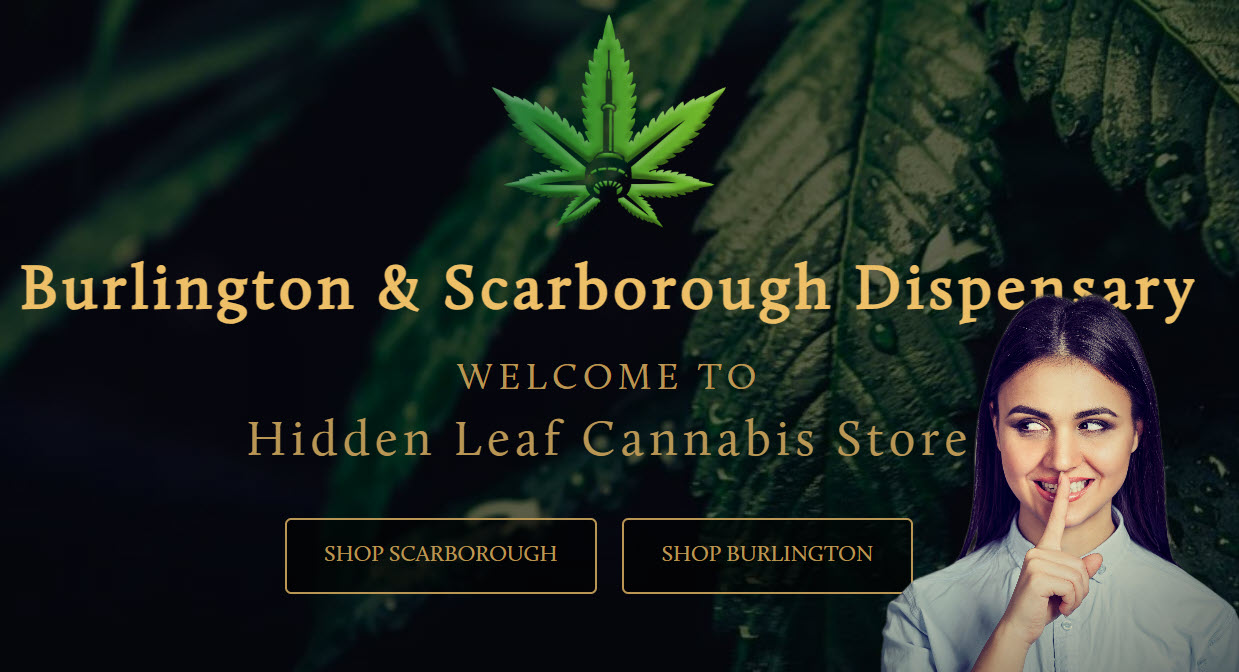

Cannabis.net sat down with Ontario’s hottest cannabis store to find out some of their “secret sauce” that made them the best dispensary in Ontario, Canada.
Q: How did you come up with the name Hidden Leaf for Ontario’s premier cannabis dispensaries?
A: Growing up, I was always a big fan of the anime show Naruto, where the main character grew up in a village called “Hidden Leaf Village.” Naruto’s backstory really resonated with me, inspiring me to name the company Hidden Leaf. As Ontario’s premier Burlington and Scarborough Dispensary, we strive to embody the spirit of community and resilience found in Naruto’s tale.
Q: What makes Hidden Leaf the best dispensary in Scarborough or Burlington?
A: At Hidden Leaf, customer service sets us apart. Unlike many other dispensaries that curate their menu based on profitability, our customers drive our selection. We actively encourage our patrons from both our cannabis store Scarborough and cannabis store Burlington to send in their product recommendations, which we try our best to stock. Plus, we offer the most competitive pricing, making cannabis affordable for everyone. Our commitment to these principles makes us stand out in the Scarborough dispensary and Burlington dispensary markets.
Q: How did you first get into the Canadian cannabis market? What made you take the leap of faith?
A: From a young age, I’ve always wanted to own a business and had a passion for the cannabis industry, learning to grow plants and understanding the different types of concentrates. Taking the risk to enter the business felt right as it was a great way to expand my knowledge and participate actively in the burgeoning cannabis market in cities like Scarborough and Burlington.
Q: Canada was the first G7 country to legalize weed, what advice would you look back and give your past self? What do you wish you knew then that you know now?
A: Looking back, I wish I had learned more about the cannabis business earlier and entered the industry as soon as it was legalized. Now, understanding the different avenues to enter the cannabis industry, I would definitely consider owning my own grow facility among other ventures. This knowledge would have been invaluable from the start, especially in dynamic markets like those of our Cannabis Store Burlington and other locations.
Q: What are Hidden Leaf’s best strains, or what do customers come back for over and over?
A: Hidden Leaf carries a wide variety of brands and strains to cater to every customer’s needs. From budget-friendly options for those looking to save a few bucks to premium quality strains for the real cannabis connoisseurs, our selection is vast. Customers frequently return for our consistent quality and the breadth of our offerings, including popular cannabis flowers at both our Scarborough and Burlington locations.
Q: What has been the biggest challenges in setting up a cannabis business in Canada?
A: The biggest challenge has been finding the right location. Despite legalization, there’s still a stigma around cannabis with many landlords, making it hard to lease properties for cannabis businesses. Additionally, the market is quite saturated with many retailers opening up, so it’s crucial to choose strategic locations for our dispensaries to avoid excessive competition, particularly in areas served by our Scarborough dispensary and cannabis store Burlington.
Q: What do you think about the future of cannabis beverages?
A: The future of cannabis beverages and edibles is very promising. Many people who are new to cannabis are not fans of smoking, so THC beverages and edibles offer a fantastic alternative. These products are expected to attract a new wave of consumers looking to explore cannabis in a more familiar and accessible form.
Q: What is the best way for people to find out more about us or visit us? Website? Social media?
A: The best way for customers to find out more about Hidden Leaf is through our website. It’s the go-to place to find the closest location, whether that’s our Scarborough dispensary or cannabis store Burlington, and to explore our menu and pricing. Our website is a comprehensive resource for anyone interested in our products and services.
Q: If someone is trying to decide which dispensary to go to in Ontario, why should they go to Hidden Leaf?
A: At Hidden Leaf, it’s all about customer service and pricing. We don’t believe in upselling; instead, our goal is to find the best product within your budget. Our customers help shape our menus with their recommendations, which we order in every week. With very competitive pricing, we believe cannabis should be affordable for everyone, making our Burlington and Scarborough Dispensary the go-to choice for quality cannabis products and genuine customer care.
Cannabis News
Are You Bored So You Smoke Weed or Do You Smoke Marijuana and Get Bored?
Published
2 days agoon
May 17, 2024By
admin
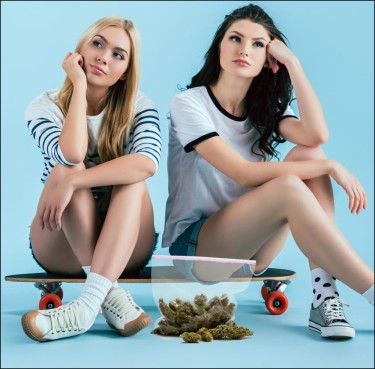
Cannabis and Boredom
Boredom is a universal human experience characterized by a lack of interest, motivation, or engagement in one’s current activities. It is a state of mind that can leave individuals feeling restless, apathetic, and dissatisfied.
But why do people get bored?
Research suggests that boredom serves a vital function within the life of the individual, acting as a signal that one’s current situation is unfulfilling and that change is needed.
Boredom can be a catalyst for personal growth and development. When faced with monotony, the mind yearns for stimulation and seeks out new experiences.
This innate drive pushes individuals to explore new hobbies, learn new skills, and challenge themselves in ways that promote self-improvement. In this sense, boredom can be seen as a motivational force that encourages people to break free from stagnation and pursue meaningful goals.
However, in today’s fast-paced, instant-gratification society, many individuals struggle with the discomfort of boredom and seek quick fixes to alleviate its symptoms.
A recent Reddit post posed the question, “Do you use cannabis to escape boredom, or does cannabis make you content with being bored?” This query highlights a common trend among cannabis users who turn to the substance as a means of coping with idle moments.
In this article, we will explore the concept of “escaping boredom” through cannabis use and examine the potential pitfalls of relying on the substance as a sole means of entertainment.
We will also delve into the function of boredom within the life of the individual and discuss how cannabis, when used mindfully, can be a tool for enhancing focus and productivity rather than a mere distraction from tedium.
Boredom, often perceived as a negative emotional state, has been the subject of numerous studies that highlight its potential benefits for personal growth. A study conducted by Mann and Cadman (2014) found that engaging in boring tasks can stimulate creativity and problem-solving abilities. The researchers suggest that when the mind is not occupied with external stimuli, it tends to wander and generate novel ideas.
Similarly, Gasper and Middlewood (2014) discovered that boredom can lead to increased motivation and goal-directed behavior, as individuals seek to alleviate the unpleasant state by pursuing meaningful activities.
However, boredom can become toxic when it is chronic or excessive. Prolonged periods of boredom have been linked to negative outcomes such as depression, anxiety, and substance abuse (Eastwood et al., 2012).
When individuals lack the skills or resources to cope with boredom in a constructive manner, they may turn to maladaptive behaviors as a means of escape. This can create a vicious cycle where the temporary relief provided by these behaviors reinforces their continued use, leading to further disengagement from life’s challenges and opportunities.
So, what’s the secret to never being bored? The answer lies in cultivating a curious and engaged mindset. Individuals who approach life with a sense of wonder and a desire to learn are less likely to experience boredom, as they find joy and meaning in even the most mundane tasks.
By setting goals, pursuing hobbies, and seeking out new experiences, one can maintain a sense of purpose and fulfillment that keeps boredom at bay.
As a regular cannabis smoker myself, I can attest to the fact that it is possible to lead a stimulating and engaging life while still enjoying the benefits of the plant. In the next segment, I will share my personal secret for using cannabis as a tool for enhancing focus and creativity rather than as a means of escaping boredom.
By mindfully integrating cannabis into a balanced and purposeful lifestyle, individuals can harness its potential for personal growth and avoid falling into the trap of chronic boredom.
As a seasoned cannabis enthusiast, I’ve come to understand that the key to overcoming boredom lies not in escaping it, but in embracing it.
The first step is to recognize that the anxiety associated with boredom is not inherently negative. Instead, it is an opportunity for self-reflection and growth. By becoming comfortable with boredom, you open yourself up to new possibilities and experiences.
One of the most common mistakes that stoners make is relying solely on cannabis for entertainment. While cannabis can certainly enhance many activities, it is essential to find something to pursue that isn’t related to smoking.
This requires honest introspection and a willingness to explore your interests and passions. Take the time to reflect on what truly excites and motivates you, and don’t be afraid to step outside your comfort zone.
When pursuing new activities, it’s crucial to focus on the process rather than the outcome. In our fast-paced, instant-gratification society, we often fixate on the end result and lose sight of the joy found in the journey itself.
By falling in love with the process of doing, you can find fulfillment and satisfaction in the present moment, regardless of the ultimate outcome. The goal should serve as a guiding light, but the real magic happens in the day-to-day efforts you put forth.
Once you discover an activity that genuinely captivates you, cannabis can become a tool for enhancing the experience rather than a means of escaping boredom. When you’re engaged in something you love, smoking cannabis can heighten your focus, creativity, and enjoyment without hindering your productivity.
If you find yourself frequently bored and turning to cannabis as a crutch, take a step back and ask yourself, “What would I really like to be doing right now?” Allow your mind to explore various possibilities and jot down any ideas that come to mind.
From this list, identify an activity that isn’t passive or cannabis-related, and make a conscious effort to dedicate your “bored” moments to pursuing this interest.
As you begin to focus on this newfound passion, you’ll notice that cannabis no longer serves as an escape from boredom but rather as a complement to your engaging pursuits. You’ll find yourself sparking a joint and diving into your work with renewed enthusiasm and focus.
Remember, the key to beating boredom as a stoner lies in embracing it as an opportunity for self-discovery and personal growth. By finding something you truly love and immersing yourself in the process, you can transform those once-dreaded moments of boredom into a catalyst for a more fulfilling and satisfying life.
As we conclude this exploration of cannabis and boredom, it’s essential to acknowledge that the temptation to use cannabis as an escape from boredom is understandable, particularly for young people who are still discovering their identity and purpose in life.
In a world that moves at breakneck speed, it’s easy to fall into the trap of seeking instant gratification and quick fixes for even the most mundane tasks.
However, it’s crucial to recognize that the fast-paced nature of our society has transformed our minds into dopamine-addicted entities, constantly craving the next hit of excitement or stimulation. This mindset can lead to a vicious cycle of unfulfillment and dissatisfaction, as we become increasingly reliant on external sources of pleasure to combat boredom.
The key to breaking free from this cycle lies in embracing difficulty and challenging ourselves to grow. By engaging in activities that push us beyond our comfort zones and require us to learn new skills, we can cultivate a sense of achievement and fulfillment that goes beyond fleeting moments of pleasure.
This process of overcoming obstacles and mastering new abilities reinforces our motivation to continue pursuing personal growth and development.
Ultimately, boredom is a weapon that can be wielded for good or ill, depending on how we choose to frame it. Rather than allowing boredom to dominate our lives or turning to cannabis as a means of escape, we must learn to harness its power and mold it into a tool for positive change. By embracing boredom as an opportunity for self-reflection, exploration, and growth, we can transform those moments of restlessness into catalysts for personal transformation.
So, to all the cannabis enthusiasts out there, I encourage you to view boredom not as an enemy to be vanquished but as an ally in your quest for a more fulfilling and purposeful life. Don’t let cannabis become a crutch that holds you back from reaching your full potential. Instead, use it as a tool to enhance your experiences and complement your passions.
Armed with this newfound perspective, go forth into the world with confidence and determination. Embrace the challenges that come your way, and use them as stepping stones to greatness.
Let boredom be your guide, leading you towards a life filled with meaning, purpose, and endless possibilities. And when you do choose to indulge in cannabis, do so not as an escape from reality but as a celebration of the incredible journey you’re on.
In the end, the sticky bottom line is this: Life is too short to be bored. So light up that joint, kick some ass, and take some names along the way. The world is yours for the taking, and with the right mindset, there’s nothing you can’t achieve.
STONED AND BORED, READ ON…
WOULD YOU RATHER… THE GAME TO PLAY WHEN YOU ARE STONED AND BORED!

Is Your Kid Smoking or Vaping Weed?

Press Release: PsychedelicNewsWire Named Official Media Sponsor of the 4th Annual Psychedelic Therapeutics and Drug Development Conference

Memorial Day’s best weed, prerolls, carts, and more 2024

Naps Done Right Can Make a Huge Difference

Michigan is selling more cannabis, but retailers are taking in less money

Can Marijuana Give A Break From All The Drama

Consumer Spending Validates Marijuana Rescheduling

How Did Hidden Leaf Cannabis Become the Leader of the Ontario Marijuana Market?

Are You Bored So You Smoke Weed or Do You Smoke Marijuana and Get Bored?

Cannabis Rescheduling Takes The Next Steps

Distressed Cannabis Business Takeaways – Canna Law Blog™

United States: Alex Malyshev And Melinda Fellner Discuss The Intersection Of Tax And Cannabis In New Video Series – Part VI: Licensing (Video)

Drug Testing for Marijuana – The Joint Blog

What you Need to Know

Cannabis, alcohol firm SNDL loses CA$372.4 million in 2022

NCIA Write About Their Equity Scholarship Program

City Of Oakland Issues RFP For Employee Training Programs

It has been a wild news week – here’s how CBD and weed can help you relax

A new April 20 cannabis contest includes a $40,000 purse

UArizona launches online cannabis compliance online course
Trending
-

 Cannabis News1 year ago
Cannabis News1 year agoDistressed Cannabis Business Takeaways – Canna Law Blog™
-

 One-Hit Wonders1 year ago
One-Hit Wonders1 year agoUnited States: Alex Malyshev And Melinda Fellner Discuss The Intersection Of Tax And Cannabis In New Video Series – Part VI: Licensing (Video)
-

 drug testing5 months ago
drug testing5 months agoDrug Testing for Marijuana – The Joint Blog
-

 Cannabis 1011 year ago
Cannabis 1011 year agoWhat you Need to Know
-

 Marijuana Business Daily1 year ago
Marijuana Business Daily1 year agoCannabis, alcohol firm SNDL loses CA$372.4 million in 2022
-

 Education1 year ago
Education1 year agoNCIA Write About Their Equity Scholarship Program
-

 Education1 year ago
Education1 year agoCity Of Oakland Issues RFP For Employee Training Programs
-

 Cannabis1 year ago
Cannabis1 year agoIt has been a wild news week – here’s how CBD and weed can help you relax



